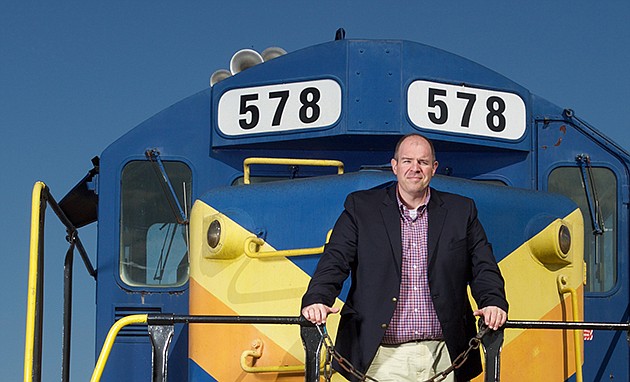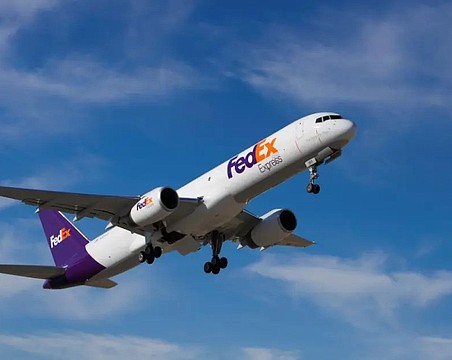Executive Summary
Company. Seminole Gulf Railway Industry. Transportation Key. Diversification is key to managing the ups and downs of the economy.
For nearly 30 years, the Fay family has operated Seminole Gulf Railway, hauling freight on 118 miles of track from Arcadia to North Naples and from Oneco to Sarasota.
But the seasoned railroad operators know that economic volatility in the commodities they transport means diversification is the only way to survive the inevitable recessions. “You try to ride it out,” says Robert Fay, vice president of the railway.
As a result, the Fays have diversified into trucking, warehousing, distribution and construction. They also operate a Murder Mystery Dinner Train that has entertained thousands of passengers in restored railcars since 1991.
The demographics of Southwest Florida have been on their side since the Fays acquired the railroad from Jacksonville-based rail giant CSX in 1987, from whom it still leases land under the tracks. Population growth drives demand for everything from construction materials to food and liquefied gas. “The baby boomers haven't even hit the peak,” Fay says.
It's a family affair. Originally from New England, patriarch Gordon Fay acquired the railroad with partners and now his sons Robert and Bruce Fay run the operations. Robert's wife, Laura, is the compliance officer, head of procurement and chief of human resources. “She does more than I do,” Robert Fay quips.
Trainloads of goods
Every 18 hours, the railway transports goods to and from Arcadia with 40 cars on average. It connects there with CSX. “We use Arcadia as a staging area,” says Fay.
With seven locomotives and about 500 rail cars, Seminole Gulf hauls heavy construction materials like sewer pipes, food and liquefied natural gas into Southwest Florida by rail. Much of the railway's outbound traffic is scrap metal from recycling operations in Lee County.
The company launched its dinner train in 1991 after it lost a major freight customer. The diversification has paid off: For the last 15 years, Seminole Gulf has transported an average of 27,000 passengers annually. In addition to a murder mystery theater with actors, it also operates a Christmas dinner train that includes a stop in Punta Gorda for a boat ride.
Last year, the company posted $10 million in revenues, a 25% jump over 2014. But annual results are muddied by the fact that the company's revenues rise and fall depending on the number of construction projects. “It comes and goes,” Fay says. “That's why we have revenue swings.”
Over the long haul, the company has averaged 4% to 5% annualized growth in revenues, Fay says. Fay forecasts single-digit growth in freight traffic again this year, with the exception of scrap metal because of the steep drop in steel prices due the slowdown in China. “Is it going to be a boom? No,” Fay says. “But booms aren't sustainable.”
The company's rail operations make up about $6 million of the company's total revenues. Of that rail revenue, $4 million was from freight and $2 million was from the dinner train.
A logistics company
When the Fay family purchased Seminole Gulf Railway in 1987, the company sought to diversify its operations from the beginning. In 1988, the Fays acquired Florida Freezer in North Fort Myers, a 65,000-square-foot facility where distributors can store perishable and frozen foods.
In addition, customers who weren't on the rail line also needed to transport goods to the railroad. For example, the Bagel Bites manufacturing plant at Billy Creek industrial park in Fort Myers needed to ship goods by rail but the park isn't on the line. “That's how we got into the trucking business,” says Robert Fay, who also is president of Florida Freezer.
Today, the company operates a fleet of 10 trucks throughout the state. “We're able to serve customers beyond our rail lines,” says Fay, whose trucks also operate out of a satellite office in Sunrise near Miami.
The biggest challenge Fay faces is one that's common to most businesses: finding employees.
Younger retired railroad employees who might be able to work for Seminole Gulf can lose retirement benefits if they go back to work for another railroad. So Fay has resorted to training his own staff and says he's had good experience hiring military veterans who received vocational training in the armed forces. “It's a problem for everybody,” Fay says.
Rail: An economic gauge
Rail traffic may be one way to judge the health of the national economy.
Indeed, the recent slowdown in freight traffic may be an indication of economic weakness. “We believe rail data may be signaling a warning for the broader economy,” says Ken Hoexter, a research analyst with Bank of America Merrill Lynch, in a Jan. 6 report to clients.
Hoexter says the decline in carloads in the last three months of the year hasn't occurred since 2009. Looking back at 30 years of data, previous periods of rail weakness have overlapped or preceded recessions, he says.
“For much of 2015, it was easy to dismiss weakness in carloads as being concentrated in industrial segments, and reflective of a secular shift away from coal,” Hoexter's report says.
“More recently the softness has spread to other, more consumer-oriented segments.”
According to the Association of American Railroads, total carload traffic fell 6.1% last year compared with 2014. “Weaknesses in energy and manufacturing, as well as world economic softening, had a negative impact on both carload and intermodal traffic in 2015,” says John Gray, the senior vice president of policy and economics for the association, in a statement.
At Jacksonville-based CSX, the railroad that serves much of Florida reported fourth-quarter revenues fell 13% as a result of slower freight traffic. “Looking forward, we expect volumes to decline in the first quarter,” says Frank Lonegro, the company's chief financial officer, in a conference call recently with analysts and investors to discuss earnings and posted on SeekingAlpha.com. “We expect the challenging freight environment to continue as the headwinds associated with coal, low commodity prices and a strong U.S. dollar more than offset the markets that will show growth.”
U.S. Rail traffic
Weakness in energy and manufacturing pushed down U.S. rail traffic in 2015. Here's how much freight railroads hauled last year by commodity:
% change
Product 2015 carloads vs. 2014
Chemicals 1,568,215 0.4%
Coal 5,128,418 -12%
Farm and food 861,913 -0.1%
Forest products 563,823 -3.4%
Grain 1,102,421 3.4%
Ores and metals 1,163,331 -13.1%
Motor vehicles and parts 906,411 2.9%
Nonmetallic minerals 1,801,795 -3%
Petroleum products 722,236 -9.7%
Other 447,641 8.1%
Total 14,266,204 -6.1%
Source: American Association of Railroads
CSX Outlook
Jacksonville-based rail operator CSX, which operates in Florida and throughout the East Coast, recently told investors that its overall outlook for the first quarter is down. Here's how the company breaks down its outlook by industry:
Unfavorable
Agriculture products: Continued headwinds from strong U.S. dollar, world market conditions.
Chemicals: Crude oil declines due to unfavorable spreads.
Domestic coal: Low natural gas prices and inventory overhang.
Export coal: Strong U.S. dollar and continued market oversupply.
Food and consumer: Truck capacity challenges rail share on western produce.
Forest products: Slow housing growth more than offset by paper declines.
Metals: Global conditions continue to challenge U.S. steel producers.
Phosphates and fertilizers: Expected fertilizer price declines delay domestic purchases.
Neutral
Intermodal: Domestic and highway-to-rail conversions offset by international losses.
Favorable
Automotive: Strong production.
Minerals: Sustained strength in aggregates and new business.
Waste and equipment: Private transportation equipment moves.
Source: CSX investor presentation, January 13






